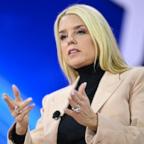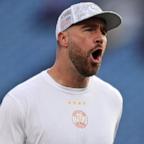Pecker tells defense that killing stories is 'standard' procedure
Former President Trump's attorney Emil Bove began his cross-examination of former National Enquirer publisher David Pecker by seeking to painting Pecker and Trump's "mutually beneficially" relationship as one that had nothing to do with the election but rather had been underway for years under a "standard operating procedure."
"Seventeen years of providing President Trump with a heads-up about potentially negative publicity?" Bove asked Pecker.
"That's correct," Pecker said.
Bove asked Pecker about the first time he ever provided Trump with information -- which Pecker testified was in the 1990s and related to a negative story about Marla Maples, Trump's ex-wife.
"Fair to say that predated the Trump Tower meeting by a long time?" Bove asked of Pecker and Trump's relationship.
"Yes," Pecker said.
"A lot of interactions?" Bove asked.
"Yes," Pecker responded.
Pecker also testified about buying and suppressing stories for other individuals, such as one for former Rep. Rahm Emanuel for $20,000.
Bove also sought to show that kind of relationship between publishers and politicians was normal, saying there was "nothing wrong about" it.
"You are aware many politicians work with the media to try to promote their image?" Bove asked.
"Yes," Pecker responded.
"That's standard operating procedure?" Bove again asked.
"Yes," Pecker said.
"And sometimes when politicians are doing that, that is to try to win elections?" Bove continued.
"Right," Pecker responded.
"Nothing wrong about that?" Bove asked.
"No," Pecker responded.






